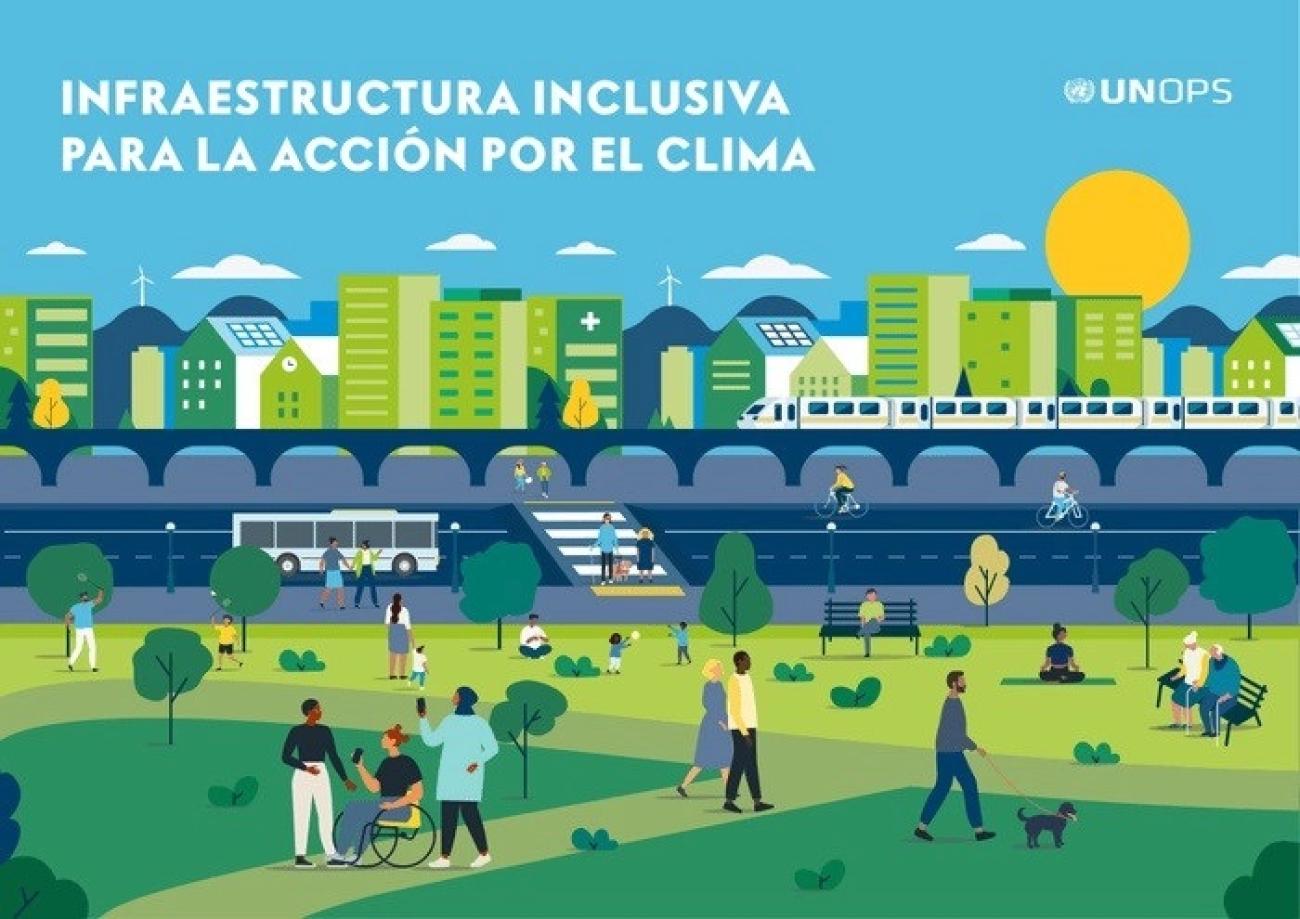Supporting Bangladesh’s Efforts towards Sustainable and Resilient Infrastructure

Friday, 27 October, 2023
Infrastructure is the backbone of any society. It provides the framework that enables communities to function, economies to prosper, nations to evolve and, most importantly, citizens to accede to their development aspirations. Yet, infrastructure is often overlooked in discussions about sustainable development despite its crucial role. This is particularly relevant in the face of climate change, especially in Bangladesh, a country which is considered one of the world’s most vulnerable countries to climate risk, notably cyclones and floods.
Research by UNOPS, the organization I lead, in collaboration with Oxford University, has shown that infrastructure is fundamental to sustainable development. It has also found that infrastructure contributes to 79 per cent of all greenhouse gas emissions and accounts for 88 per cent of all adaptation costs. Clearly, infrastructure is the key to climate change mitigation and adaptation efforts, including responses to loss and damage.
We must understand and act upon the nexus between the climate crisis, infrastructure and sustainable development. Developing countries such as Bangladesh have also been disproportionately affected by the consequences of Covid-19, fragmentation of supply chains, inflation and rise in energy and food prices.
These issues, as we know, are heavily interlinked. The impacts of climate change risk making inequalities worse, reducing incomes, undermining resilience and hindering the development of impacted communities. Every climate-induced disaster can create further cycles of vulnerability, making communities less able to cope with the next shock.
To deal with the immense and unprecedented needs from the impacts of a changing climate, we need infrastructure that services present and future needs ― for people and the planet. While we know that significant infrastructure investment is needed, it is important to work together to ensure that this investment is done in a way that builds resilience, accelerates low-carbon transitions and importantly leaves no one behind.
It is also important to note that investment in sustainable infrastructure must extend beyond physical structures. There also needs to be investment in the enabling environment of human resources, policies and processes, and in technology. It requires investment in the operations and maintenance of infrastructure so that it lasts, and it requires investment in safeguarding people and the planet to ensure it is safe and mitigates or adapts to the changing climate.
By working together, we can bring together the right expertise to make sure that infrastructure serves everyone equitably and is climate-compatible. We can find more effective solutions to the immense needs, such as nature-based green infrastructure solutions that are both environment-friendly and cost-effective.
UNOPS has a focus on project implementation, with particular expertise in infrastructure and procurement. Over the years, we have worked hard to support our partners to help achieve sustainable development. This includes supporting capacity enhancement, infrastructure building and strengthening national systems, as we have been doing in Bangladesh for more than 20 years.
An example of this strong partnership is the National Resilience Programme, where UNOPS worked with the Government of Bangladesh to strengthen its planning, technical and operational capacities to deliver resilient infrastructures to withstand various shocks and stresses, including those induced by climate change. This programme is funded by the governments of the United Kingdom, Sweden and Bangladesh and implemented together with UNDP and UN Women. As part of this, UNOPS worked with the Local Government Engineering Department, the largest public sector organisation mandated for local infrastructures across the country, to strengthen its capacities to build resilience through risk-informed and gender-responsive infrastructure systems.
Similarly, we have worked together with partners from the Government of Bangladesh and others to enhance the long-term resilience of Bangladesh’s infrastructure against the threats of climate change, with a particular focus on the transport, water and energy sectors. This initiative focused on assessing climate risks to infrastructure, quantifying the impact on the provision of services at the household level, including through a gender lens, and achieving the Sustainable Development Goals (SDGs).
In collaboration with the Ministry of Housing and Public Works, UNEP and UN-Habitat, and funded by Germany, we are helping develop a roadmap to decarbonise the buildings and construction industry in Bangladesh by 2050. Additionally, we will establish a national alliance to drive the sustainable buildings and construction agenda forward in Bangladesh.
Elsewhere, UNOPS is supporting Bangladesh’s efforts to strengthen health systems. With funding from the Global Fund and in partnership with various organisations under the Ministry of Health and Family Welfare, UNOPS is constructing 29 oxygen plant facilities at government hospitals across the country to produce oxygen for medical purposes. We are also supporting the Health Ministry in the procurement of laboratory equipment, furniture and related services to strengthen Bangladesh’s capacity to efficiently handle and manage Covid-19.
But we can go further. Bangladesh is due to graduate from its current Least Developed Country status in 2026. UN Data shows that between 2000 and 2022, the country has had significant advancement in its productive capacities across human capital, energy, ICT, institutions, private sector and structural change categories. During the same period, Bangladesh regressed in natural capital and transport, the latter due to a faster increase in population versus the capacity of the infrastructure to satisfy growing needs. It is, therefore, important that in the coming years, infrastructure investments expand while employing solutions that protect and enhance natural capital.
Just some weeks ago, we signed a Host Country Agreement with the government, which will strengthen our joint partnership. It manifests UNOPS’ commitment to supporting Bangladesh in fulfilling its renewed commitment to achieving the Sustainable Development Goals fixed at the recently concluded SDG Summit in New York. It also highlights our firm support to Bangladesh to achieve its national development agenda, which includes the country’s aspiration to become an upper-middle income country by 2031 and a high-income one by 2041.
We are committed to supporting sustainable development in Bangladesh, driven by the belief that the future is not something that happens to us but something we build together.








